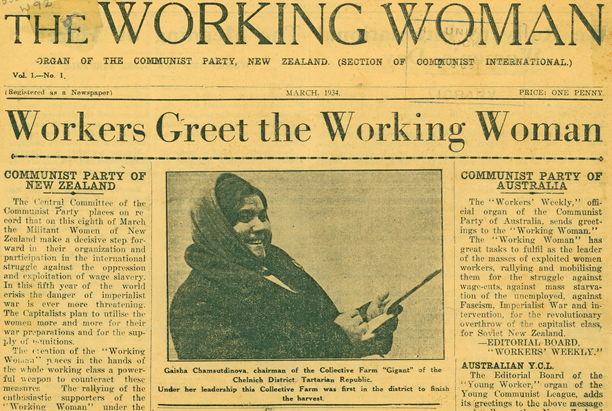
The first working women’s conference was held at Labour weekend 1934 (20–22 October). It was organised by Elsie Farrelly (later Locke) and Connie Birchfield under the auspices of the Working Women’s Movement, which the two women had founded in mid-1934. The conference aimed to link women with working-class organisations, and was supported by the Communist Party of New Zealand.
A ten-point guide was approved and published by the attendees as part of their National Conference of Working Women Report. It included these action points:
- Against fascism and war
- Equal pay for equal work
- A women’s delegation to the USSR [Soviet Union]
- Free medical, dental, surgical and maternity attention
- No discrimination against married or single women in employment or relief
- Support the National Unemployed Workers’ Movement demands for the unemployed
- Equal facilities for education in town and country and provision of books, uniforms and meals for school children
- No discrimination between Māori and Pākehā
- Free dissemination of birth control knowledge and the legalisation of abortion
- Social insurance for all workers at the expense of the state and the employers.
Sources:
Hazel Armstrong, ‘History of Charter activism’, in Gay Simpkin and Marie Russell (eds), Women will rise! Recalling the Working Women’s Charter, Steele Roberts, Paraparaumu Beach, 2022, pp 34-5.
Maureen Birchfield, Looking for answers: A life of Elsie Locke, Canterbury University Press, Christchurch, 1998, p. 153.
Read more on NZHistory
External links
How to cite this page
'National Conference of Working Women Report approved', URL: https://nzhistory.govt.nz/page/national-conference-working-women-report-approved, (Ministry for Culture and Heritage), updated 7-Nov-2022

Community contributions